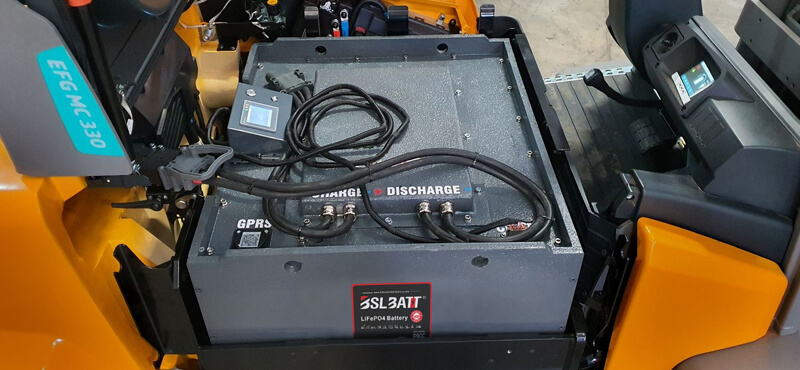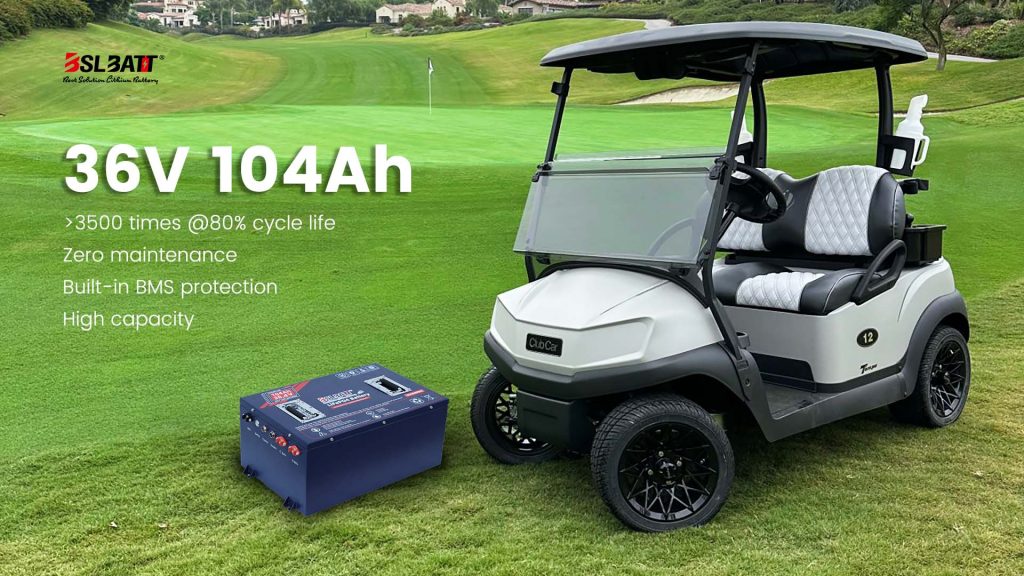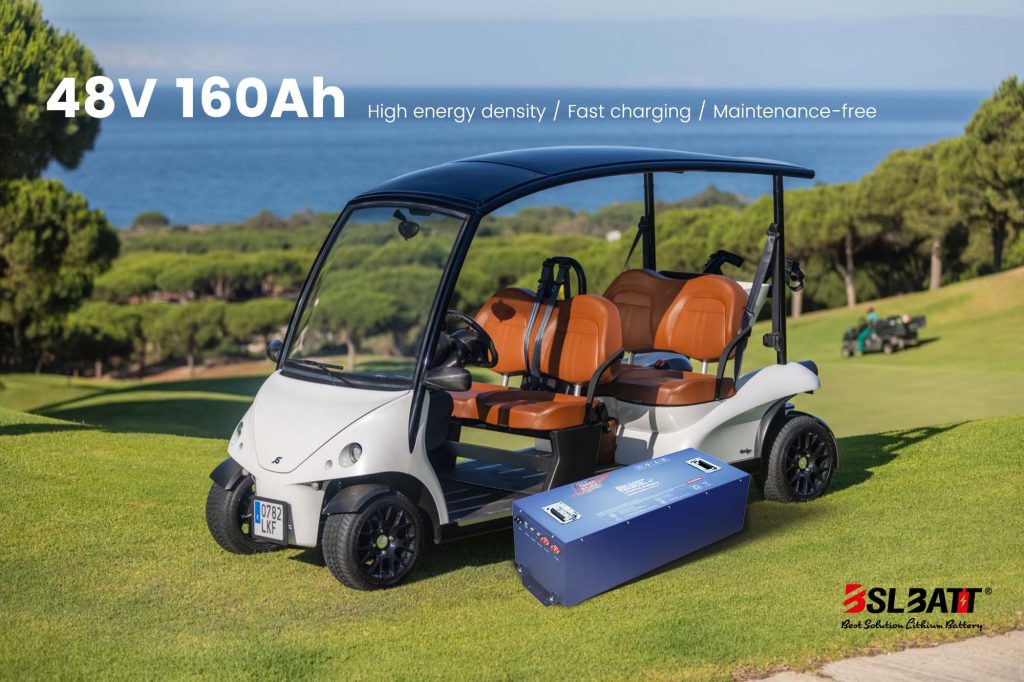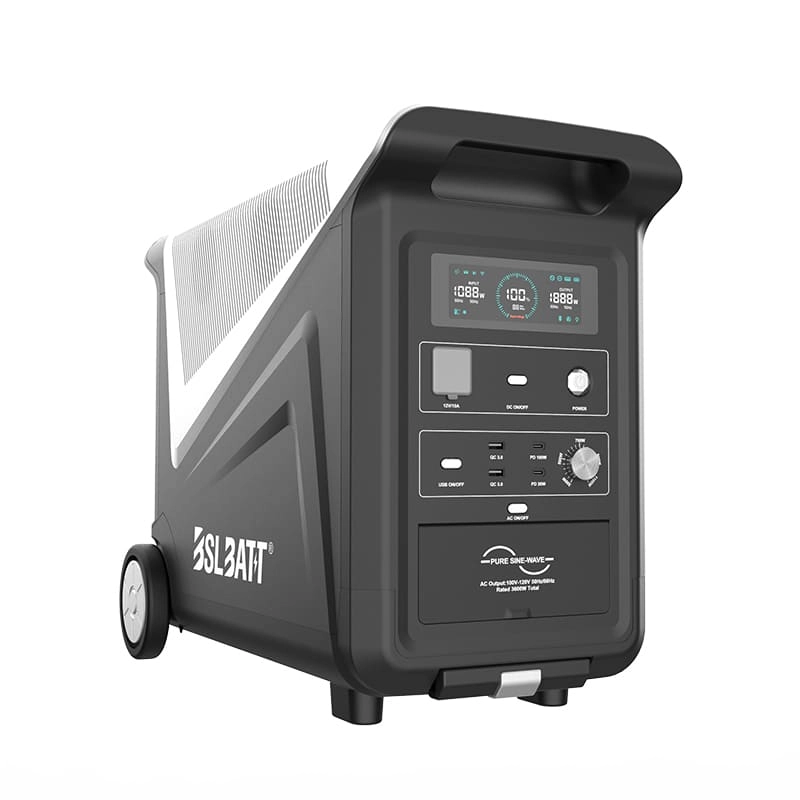
- China
- English
- Françai
- Español
- Deutsch
- Română
- العربية
- 한국어
- 日本語
- Italiano
- Português
- Gaeilge
- Dansk
- Čeština
- Русский
- Afrikaans
- Euskara
- Català
- Esperanto
- हिन्दी
- Ελληνικά
- Bahasa Melayu
- Polski
- Српски
- Kiswahili
- ภาษาไทย
- Tiếng Việt
- Türkçe
- Svenska
- Cymraeg
- Slovenčina
- Latviešu
- Malti
- Magyar
- Galego
- ગુજરાતી
- Eesti Keel
- বাংলা
- Shqip
- беларуская мова
- Nederlands
- Tagalog
- ქართული
- Íslenska
- Kreyòl Ayisyen
- Lietuvių
- Norsk
- slovenščina
- தமிழ்
- Українська
- ײִדיש
- اردو
- తెలుగు
- فارسی
- македонски
- ಕನ್ನಡ
- Bahasa Indonesia
- עברית
- Suomi
- Hrvatski
- Български
- Azerbaijani

Industry Application
Product Type
How Do 36V vs 48V vs 72V Golf Cart Lithium Batteries Differ?
Understanding How Do 36V vs 48V vs 72V Golf Cart Batteries Differ? is essential when selecting the right battery for your golf cart, as it can greatly influence performance, cost, and maintenance. A 36V battery is a budget-friendly option but may fall short in power and speed, making it suitable for flat terrain. On the other hand, a 48V battery offers improved acceleration and efficiency, making it a better choice for hilly areas or higher performance requirements. For those seeking maximum speed and torque, a 72V battery is ideal for challenging terrains, though it comes with a higher price tag. By understanding How Do 36V vs 48V vs 72V Golf Cart Batteries Differ?, you can evaluate your terrain, weight capacity, and budget to choose the best battery for your needs.
Key Takeaways
- Pick a 36V battery if you want a cheaper option. It works well for light use on flat ground and short rides.
- Go for a 48V battery if you need more speed and power. It’s good for hills or medium work tasks.
- Choose a 72V battery for the most power and speed. It’s best for steep hills, heavy loads, and long trips.
- Think about the cost now versus saving money later. Higher voltage batteries cost more but last longer and work better.
- Make sure the battery fits your golf cart before buying. This prevents damage and keeps it working well.
Understanding Golf Cart Battery Voltages

What Voltage Means for Golf Cart Batteries
Voltage plays a critical role in determining the performance and efficiency of your golf cart. Higher voltage systems, such as 48V or 72V, allow for more powerful motors. These motors handle steeper inclines and heavier loads with ease. For example, a 48V system improves acceleration and reduces current draw, which minimizes heat generation and enhances overall efficiency. On the other hand, a 36V system may suffice for lighter loads or flat terrains but lacks the power needed for demanding conditions. Choosing the right voltage ensures your golf cart operates smoothly and meets your specific needs.
Why Lithium Batteries Are the Preferred Choice
Lithium batteries have become the go-to option for golf carts due to their numerous advantages over traditional lead-acid batteries. They are lightweight, which improves speed and efficiency. Built-in protections, such as overcharge and overheating safeguards, make them safer to use. Lithium batteries also recharge faster and require no maintenance, unlike lead-acid batteries that need regular water refills. Additionally, they provide consistent power without voltage drops, even when the charge is low. Their longer lifespan and reduced carbon footprint make them an environmentally friendly choice. These features make lithium batteries a superior option for modern golf carts.
| Advantage | Description |
|---|---|
| Built-In Protections | Includes safety features like overcharge and overheating protection. |
| Maintenance Free | No need for routine maintenance or water filling. |
| Reduced Carbon Footprint | Contributes less to environmental waste compared to lead-acid batteries. |
| Weight Reduction | Lighter design enhances speed and efficiency. |
| Improved Power | Delivers consistent performance without voltage sag. |
| Faster Recharging | Charges quickly with lower self-discharge rates. |
| Drop-In Replacement | Easy to install in most golf carts without major modifications. |
Overview of 36V, 48V, and 72V Options
Golf cart lithium batteries come in three main voltage options: 36V, 48V, and 72V. Each has unique features and is suited for different scenarios. A 36V battery is common in older or entry-level golf carts. It is affordable but may lack the power and speed of higher voltage options. A 48V battery is increasingly popular due to its improved performance. It offers better acceleration, longer run times, and is ideal for hilly terrains. For maximum speed and torque, a 72V battery is the best choice. It excels on steep inclines and flat terrains but comes with a higher price tag.
- Voltage: Options include 36V, 48V, and 72V, each catering to specific needs.
- Capacity (Amp-Hour Rating): Determines how long your golf cart can run on a single charge.
- Weight: Lighter batteries improve efficiency and performance.
- Safety Features: Look for overcharge protection and thermal management systems.
- Compatibility: Ensure the battery matches your golf cart model.
- Price Point: Consider your budget when selecting a battery.
By understanding these options, you can better evaluate how 36V, 48V, and 72V golf cart batteries differ and choose the one that aligns with your requirements.
36V Golf Cart Lithium Batteries
Performance
Power Output and Speed
A 36V golf cart lithium battery provides adequate power for light-duty use. It is ideal for flat terrains and lighter loads. These batteries are significantly lighter than traditional lead-acid options, which enhances overall performance. The reduced weight improves speed and reduces wear on your golf cart. However, compared to higher voltage options like 48V, the 36V battery delivers less torque and acceleration. This makes it less suitable for hilly terrains or heavy loads.
- Key Features of 36V Batteries:
- Lightweight design enhances efficiency.
- Suitable for moderate speeds on flat surfaces.
- Limited power output compared to 48V or 72V options.
Range and Efficiency
A 36V lithium battery offers decent range and efficiency for short trips or casual use. Its energy consumption is lower, which can extend the battery life. However, the range may decrease when carrying heavier loads or navigating uneven terrain. If you need a golf cart for longer distances or challenging conditions, a higher voltage battery might be a better fit.
Cost
Initial Cost
The 36V lithium battery is one of the most affordable options available. Its lower price point makes it an attractive choice for budget-conscious buyers. While it may not match the performance of 48V or 72V batteries, it provides a cost-effective solution for basic needs.
Long-Term Cost
Although the initial cost is lower, the long-term savings may not be as significant. Higher voltage batteries often have better efficiency and longer lifespans, which can reduce replacement frequency. If you prioritize upfront affordability, the 36V battery is a solid choice. However, for long-term value, you might consider investing in a higher voltage option.
Maintenance
Ease of Maintenance
Maintaining a 36V lithium battery is straightforward. You should use a compatible charger to prevent damage and regularly inspect the terminals and cables for corrosion. Keeping the battery in a controlled environment helps maintain its performance. These simple steps ensure your battery remains in good condition.
Lifespan and Durability
Lithium batteries, including 36V options, are known for their durability. They require minimal upkeep compared to lead-acid batteries. However, replacing all batteries in a set is essential to maintain balanced performance. With proper care, a 36V lithium battery can last several years, making it a reliable choice for light-duty use.
Best Use Cases
Ideal Scenarios
A 36V golf cart lithium battery works best in specific situations. You should consider this option if you use your golf cart for light-duty purposes. These batteries are significantly lighter than traditional lead-acid ones, which improves performance and reduces wear on your cart over time. They are ideal for:
- Entry-level golf carts designed for casual use.
- Driving on flat terrain where power demands are minimal.
- Short trips or occasional use, such as around a neighborhood or a small golf course.
The lightweight design of 36V lithium batteries makes them easy to handle and install. If you prioritize affordability and simplicity, this battery type offers a practical solution.
Limitations
While 36V lithium batteries have their advantages, they also come with limitations. You may find them unsuitable for more demanding scenarios. These batteries often struggle with:
- Steep hills or uneven terrain that require higher torque.
- Heavy loads, such as carrying multiple passengers or equipment.
- Long-distance travel, as their range is limited compared to higher voltage options.
If your golf cart needs to handle challenging conditions or extended use, a 36V battery might not meet your expectations. Upgrading to a 48V or 72V battery could provide the additional power and range you need.
Tip: Evaluate your typical usage patterns before choosing a 36V battery. It’s a great choice for flat, light-duty applications but may fall short in high-performance scenarios.
48V Golf Cart Lithium Batteries
Performance
Power Output and Speed
A 48V golf cart lithium battery delivers a noticeable boost in power compared to a 36V option. You’ll experience better acceleration, making it easier to navigate hilly terrains or carry heavier loads. This voltage level supports more powerful motors, which translates to higher speeds and smoother performance. If you need a golf cart that can handle moderate to challenging conditions, a 48V battery provides the necessary torque and responsiveness.
Range and Efficiency
The 48V lithium battery offers an excellent balance between range and efficiency. It consumes energy more effectively than a 36V battery, allowing you to travel longer distances on a single charge. This makes it ideal for extended use, such as on larger golf courses or for utility purposes. The improved efficiency also reduces energy waste, which helps extend the battery’s lifespan and lowers operating costs over time.
Cost
Initial Cost
The initial cost of a 48V lithium battery is higher than a 36V option. However, this price reflects its superior performance and versatility. If you’re upgrading from a lower voltage system, you may also need to invest in compatible components, such as a new charger or motor. While the upfront expense is greater, the benefits often justify the investment for users seeking better performance.
Long-Term Cost
Over time, a 48V battery proves to be cost-effective. Its higher efficiency and longer lifespan reduce the need for frequent replacements. You’ll also save on energy costs due to its optimized power usage. For those who prioritize long-term value, this battery offers a solid return on investment.
Maintenance
Ease of Maintenance
Maintaining a 48V lithium battery is simple. You only need to ensure proper charging practices and occasionally inspect the connections for wear or corrosion. These batteries don’t require water refills or other time-consuming tasks, making them a low-maintenance option for busy users.
Lifespan and Durability
A 48V lithium battery is built to last. With proper care, it can provide consistent performance for several years. Its durability makes it a reliable choice for users who need a dependable power source for regular or heavy-duty use. By following basic maintenance guidelines, you can maximize its lifespan and enjoy worry-free operation.
Best Use Cases
Ideal Scenarios
A 48V golf cart lithium battery is perfect for users who need a balance of power, range, and efficiency. You’ll find it ideal for moderate to heavy-duty applications where performance matters. These batteries shine in the following scenarios:
- Hilly Terrains: If your golf cart frequently tackles slopes or uneven surfaces, a 48V battery provides the torque and acceleration needed to handle these challenges.
- Longer Distances: For extended trips, such as navigating large golf courses or resorts, the improved range of a 48V battery ensures you won’t run out of power mid-journey.
- Utility Use: If you use your golf cart for tasks like hauling equipment or transporting passengers, the extra power and efficiency of a 48V system make it a reliable choice.
- Frequent Use: For daily or regular use, the durability and energy efficiency of a 48V lithium battery reduce wear and tear on your cart while keeping operating costs low.
Tip: If you want a versatile battery that performs well in various conditions, a 48V option offers the best mix of power and practicality.
Limitations
While a 48V lithium battery excels in many areas, it does have some limitations. You should consider these factors before making your decision:
- Higher Initial Cost: The upfront price of a 48V battery is higher than a 36V option. If you’re on a tight budget, this might be a concern.
- Compatibility Issues: Upgrading to a 48V system may require additional components, such as a compatible charger or motor, which adds to the overall cost.
- Overkill for Light Use: If you only use your golf cart for short trips on flat terrain, the extra power of a 48V battery might be unnecessary.
Note: Evaluate your typical usage and budget to determine if the benefits of a 48V battery outweigh its limitations. For light-duty applications, a 36V battery might be more cost-effective.
72V Golf Cart Lithium Batteries
Performance
Power Output and Speed
A 72V golf cart lithium battery delivers unmatched power and speed. You’ll notice a significant boost in acceleration, making it ideal for steep inclines and heavy loads. This voltage level supports high-performance motors, allowing your golf cart to reach top speeds effortlessly. If you need a cart for demanding terrains or high-speed applications, a 72V battery provides the torque and responsiveness required.
- Key Benefits:
- Exceptional acceleration for challenging conditions.
- High-speed capability for faster travel.
- Superior torque for heavy-duty tasks.
Tip: Choose a 72V battery if you prioritize speed and power over cost.
Range and Efficiency
The 72V lithium battery offers an impressive range, making it perfect for long-distance travel. Its energy efficiency ensures that you can cover more ground on a single charge. This battery type minimizes energy loss, which helps maintain consistent performance throughout your journey. Whether you’re navigating a large golf course or using your cart for extended utility tasks, a 72V battery ensures reliability.
Cost
Initial Cost
The initial cost of a 72V lithium battery is the highest among the three voltage options. This reflects its advanced performance capabilities and specialized design. If you’re upgrading from a lower voltage system, you may also need to invest in compatible components like a new motor or controller. While the upfront expense is significant, the benefits justify the investment for users with demanding needs.
Long-Term Cost
Over time, a 72V battery proves cost-effective due to its durability and efficiency. Its longer lifespan reduces the frequency of replacements, and its optimized energy usage lowers operating costs. If you value long-term savings and high performance, this battery offers excellent value.
Maintenance
Ease of Maintenance
Maintaining a 72V lithium battery is straightforward. You only need to follow proper charging practices and occasionally inspect the connections for wear. These batteries don’t require water refills or other labor-intensive tasks, making them a low-maintenance option for busy users.
Lifespan and Durability
A 72V lithium battery is built to handle heavy-duty use. With proper care, it can last several years while maintaining consistent performance. Its robust design ensures durability, even under demanding conditions. By following basic maintenance guidelines, you can maximize its lifespan and enjoy reliable operation.
Note: A 72V battery is a long-term investment for users who need maximum power and efficiency.
Best Use Cases
Ideal Scenarios
A 72V golf cart lithium battery is the ultimate choice for high-performance needs. You should consider this option if your golf cart operates in demanding environments or requires maximum power. These batteries excel in the following scenarios:
- Steep Inclines and Rugged Terrains: If your golf cart frequently tackles challenging slopes or uneven surfaces, a 72V battery provides the torque and acceleration needed to handle these conditions effortlessly.
- Heavy Loads: For tasks like transporting multiple passengers or hauling heavy equipment, the superior power output ensures smooth operation without straining the motor.
- Long-Distance Travel: A 72V battery offers an extended range, making it perfect for large golf courses, resorts, or utility applications where you need to cover significant distances on a single charge.
- High-Speed Applications: If speed is a priority, this battery delivers unmatched performance, allowing your golf cart to reach top speeds with ease.
Tip: Choose a 72V battery if you need a reliable power source for heavy-duty or high-speed use. It’s an investment that pays off in performance and durability.
Limitations
While a 72V lithium battery offers impressive benefits, it may not suit every situation. You should weigh the following limitations before deciding:
- Higher Initial Cost: The upfront expense of a 72V battery is significantly higher than 36V or 48V options. If you’re on a tight budget, this might not be the best choice.
- Compatibility Requirements: Upgrading to a 72V system often requires additional components, such as a new motor, controller, or charger. These add-ons increase the overall cost.
- Overkill for Light Use: If you only use your golf cart for short trips or on flat terrain, the extra power and range of a 72V battery may be unnecessary.
Note: Evaluate your typical usage and budget carefully. A 72V battery is ideal for demanding applications but may not be practical for casual or light-duty use.
Comparing 36V, 48V, and 72V Golf Cart Lithium Batteries

Performance Comparison
When comparing performance, higher voltage batteries deliver more power and speed. A 36V battery works well for light-duty tasks, such as short trips on flat terrain. However, it struggles with steep inclines or heavy loads. A 48V battery offers a noticeable improvement in acceleration and torque, making it suitable for hilly areas or moderate utility tasks. For maximum performance, a 72V battery provides unmatched power and speed. It handles steep slopes, heavy loads, and long distances with ease.
In terms of lifespan, higher voltage batteries tend to last longer. A 72V lithium battery may last up to twice as long as a 36V battery due to its increased cycle life. This durability makes it a better choice for demanding applications.
Cost Comparison
The initial cost of a 36V battery is the lowest, making it a budget-friendly option. A 48V battery costs more upfront but offers better performance and efficiency. The 72V battery has the highest initial price, reflecting its advanced capabilities.
Over time, higher voltage batteries can save you money. A 72V battery’s longer lifespan and energy efficiency reduce replacement and operating costs. While the upfront expense is higher, the long-term savings often justify the investment.
Maintenance Comparison
Lithium batteries require minimal maintenance compared to traditional lead-acid batteries. A 36V battery is easy to maintain but may need replacement sooner than higher voltage options. A 48V battery offers a good balance of durability and low upkeep. The 72V battery, with its robust design, requires the least maintenance and lasts the longest.
Tip: Choose a battery that matches your performance needs and budget while considering long-term maintenance and replacement costs.
Suitability for Different Scenarios
Choosing the right battery voltage depends on how you plan to use your golf cart. Each option offers unique advantages tailored to specific needs. Here’s how you can decide:
- 36V Batteries: These work best for light-duty tasks. If you use your golf cart for short trips on flat terrain, a 36V battery provides sufficient power. It’s also a great choice for budget-conscious users who prioritize affordability over performance.
- 48V Batteries: A 48V system is ideal for moderate to challenging conditions. You’ll notice better acceleration and torque, which makes it perfect for hilly or uneven terrain. This option also offers longer run times, making it suitable for extended use, such as navigating large golf courses or resorts.
- 72V Batteries: If you need maximum power and speed, a 72V battery is the way to go. It excels in demanding scenarios like steep inclines, heavy loads, or long-distance travel. This option is perfect for high-performance applications where reliability and efficiency are critical.
Tip: Evaluate your typical usage patterns. For flat terrain and light loads, stick with 36V. For hills and moderate utility tasks, go with 48V. For heavy-duty or high-speed needs, 72V is your best bet.
Pros and Cons Table
| Voltage | Pros | Cons |
|---|---|---|
| 36V | Affordable | Lacks power and speed |
| 48V | Improved performance, better acceleration, longer run times | Moderate cost |
| 72V | High speed and torque capabilities | Higher cost |
Note: Use this table to weigh the benefits and drawbacks of each option. It helps you make an informed decision based on your budget and performance needs.
Understanding how 36V, 48V, and 72V golf cart batteries differ helps you make an informed decision. A 36V battery suits flat terrain and light-duty tasks, while a 48V battery offers better acceleration and efficiency for hilly areas. For maximum power and speed, a 72V battery excels in demanding conditions.
To select the right battery, follow these steps:
- Compatibility with Your Golf Cart: Confirm the battery matches your cart’s voltage and size.
- Budget Considerations: Set a budget, remembering lithium batteries cost more upfront but save money long-term.
- Warranty and Customer Support: Choose batteries with strong warranties and reliable support.
- Safety Precautions: Opt for batteries with safety features and follow installation guidelines.
Evaluate your use case carefully. For flat terrain, a 36V system is cost-effective. A 48V system works well for recreational use, offering moderate power. If you need high performance, a 72V system is ideal for steep inclines or heavy loads.
Tip: Match your battery choice to your golf cart’s needs and your performance expectations. This ensures you get the best value and reliability.
FAQ
1. How do I know which voltage battery is compatible with my golf cart?
Check your golf cart’s user manual or manufacturer’s specifications. Most carts are designed for a specific voltage, such as 36V, 48V, or 72V. Installing the wrong voltage can damage the motor or controller. Always confirm compatibility before purchasing a battery.
2. Can I upgrade my golf cart from 36V to 48V or 72V?
Yes, you can upgrade, but it requires additional components. You’ll need a compatible motor, controller, and charger. Upgrading increases power and speed, but it also raises costs. Consult a professional to ensure proper installation and avoid damaging your cart.
3. How long does a lithium battery last compared to a lead-acid battery?
Lithium batteries typically last 5-10 years, depending on usage and maintenance. Lead-acid batteries last 3-5 years. Lithium batteries also maintain consistent performance over their lifespan, while lead-acid batteries lose efficiency as they age.
4. What safety features should I look for in a lithium battery?
Look for built-in protections like overcharge, over-discharge, and thermal management systems. These features prevent overheating and extend battery life. A battery with a strong warranty and certifications, such as UL or CE, ensures reliability and safety.
5. Do higher voltage batteries consume more energy?
No, higher voltage batteries are more energy-efficient. They draw less current to produce the same power, reducing heat generation and energy loss. This efficiency extends the battery’s lifespan and lowers operating costs over time.
Tip: Always evaluate your golf cart’s needs and usage patterns before choosing a battery. This ensures you get the best performance and value.
A Guide to Choosing the Best 48V Lithium Golf Cart Battery
Would it be worth investing in a 48V ...
10 Exciting Ways To Use Your 12V Lithium Batteries
Back in 2016 when BSLBATT first began designing what would become the first drop-in replacemen...
BSLBATT Battery Company Receives Bulk Orders from North American Customers
BSLBATT®, a China Forklift battery manufacturer specializing in the material handling indust...
Fun Find Friday: BSLBATT Battery is coming to another great LogiMAT 2022
MEET US! VETTER’S EXHIBITION YEAR 2022! LogiMAT in Stuttgart: SMART – SUSTAINABLE – SAF...
Looking for new Distributors and Dealers for BSL Lithium Batteries
BSLBATT battery is a fast-paced, high-growth (200% YoY ) hi-tech company that is leading the a...
BSLBATT to Participate at MODEX 2022 on March 28-31 in Atlanta, GA
BSLBATT is one of the largest developers, manufacturers, and integrators of lithium-ion batter...
What makes the BSLBATT the Superior Lithium Battery for your Motive Power needs?
Electric forklift and Floor Cleaning Machines owners who seek the ultimate performance will fi...



























